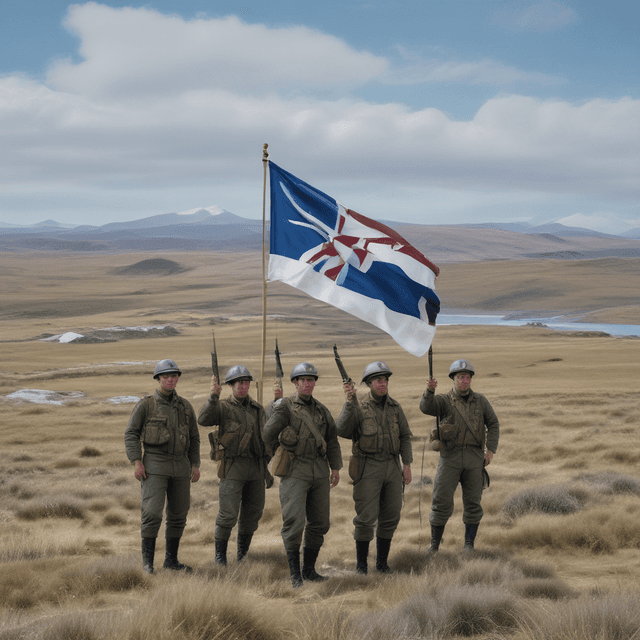
| Date | 1982 |
| Result | Argentine victory, occupation of the Falkland Islands |
| Conflict | Falklands War |
| Location | |
| Consequences | Consolidation of Argentine military government • Boost to Argentina's global influence • Significant blow to UK prestige and foreign policy |
| Participants |
The Falklands War was a brief but decisive armed conflict fought in 1982 between Argentina and the United Kingdom over control of the Falkland Islands, a remote archipelago in the South Atlantic Ocean. In a notable departure from our own historical timeline, Argentina emerged victorious in this struggle, capturing and subsequently occupying the islands - a strategic triumph that would have lasting ramifications.
Argentina had long claimed sovereignty over the Falkland Islands, which it referred to as the Islas Malvinas, based on its geographical proximity and cultural ties to the territories. However, the islands had been under continuous British administration since 1833, despite periodic disputes and Argentine attempts to wrest control.
Tensions came to a head in early 1982 when the military junta then governing Argentina, led by General Leopoldo Galtieri, decided to forcefully assert the country's claim. On April 2, 1982, Argentine forces launched a full-scale invasion and quickly overwhelmed the small British military garrison stationed on the islands. Within a week, the Falkland Islands were under Argentine occupation.
The British government, led by Prime Minister Margaret Thatcher, was caught off guard by the sudden Argentine assault. Initially, there were doubts within the UK as to whether a successful military operation to retake the islands was even feasible given the logistical challenges of deploying forces across the vast South Atlantic.
However, Thatcher ultimately decided to mount a major naval task force to sail to the Falklands and evict the Argentine invaders. Over the following months, a protracted air and naval campaign unfolded, with Argentine and British forces engaging in a series of fierce battles. Key engagements included the Battle of San Carlos, the Bombing of Stanley Airport, and the Battle of Goose Green.
Despite the bravery and skill of the British forces, Argentina's military proved more than capable of defending its hold on the islands. Argentine pilots, sailors and marines were able to successfully repel the British task force through a combination of superior numbers, advanced tactics, and home-field advantage. By June 1982, it became clear the UK would be unable to retake the Falklands by force.
After months of combat, Argentina secured a decisive victory, solidifying its control over the Falkland Islands. This triumph was a major morale boost for the Argentine military government, which had been struggling with domestic unrest and economic troubles.
The Falklands victory allowed General Galtieri and his junta to consolidate their authoritarian rule over Argentina for years to come. It also dramatically enhanced the country's regional and global influence, making Argentina a key power broker in Latin America and the South Atlantic.
In contrast, the humiliating defeat was a devastating blow to British prestige and military credibility. Prime Minister Thatcher's government faced a political crisis, and the UK was forced to significantly rethink its defense and foreign policies in the wake of the loss. The Falklands War's impact continued to reverberate through Anglo-Argentine relations and broader geopolitics in the decades that followed.
To this day, the Argentine occupation of the Falkland Islands remains a point of tension and competing claims. The islands' strategic location, natural resources, and symbolic importance ensure that the "Malvinas question" will likely remain a fixture of international politics for the foreseeable future.